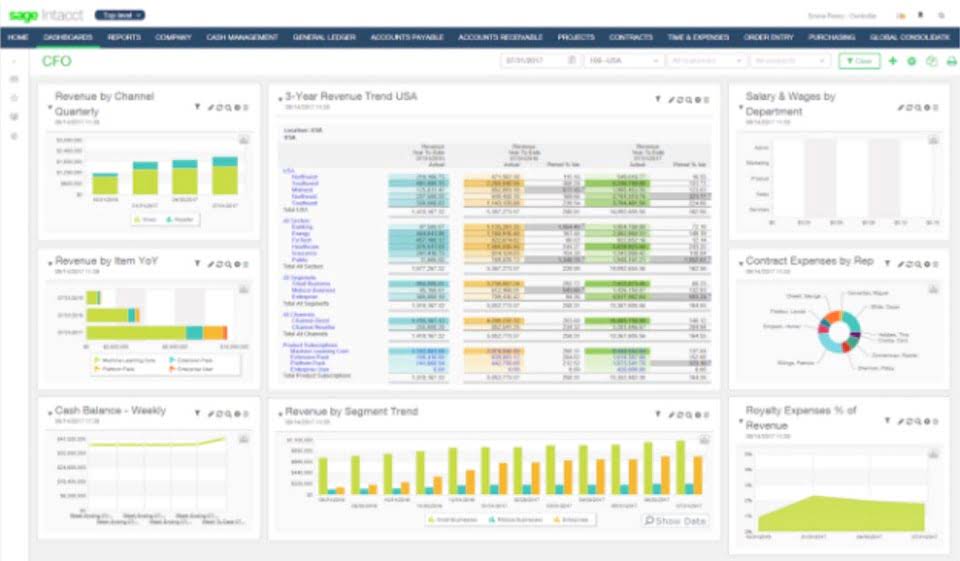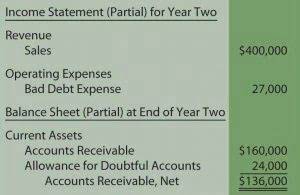
While churches enjoy numerous fiscal advantages as tax-exempt entities under IRS guidelines, these privileges carry corresponding responsibilities. To preserve the church’s tax-exempt standing, administrators must understand and follow IRS regulations concerning financial transactions, documentation and annual filing necessities (e.g., Form 990). Managing employees’ wages, benefits and payroll taxes needs close attention and understanding of relevant laws. Here are some essential areas that they should familiarize themselves with to navigate the intricacies of church accounting successfully.
Church Accounting Empowers Fundraising
As a church leader, your top priority is furthering your church’s mission and ministry. With a cloud-based accounting program, you can gain secure access to your parish finances at any time, from anywhere—view data and reports in real-time. If someone on your team isn’t in the office but needs to balance the books or check the budget, they can do so from any device with internet access.
- Furthermore, Botkeeper is cloud-based, which means that churches can access their financial information and data from anywhere at any time.
- Financial statements ensure you’re using donations correctly and limit the chance of auditing.
- Features include account segments for more detailed reporting of transactions as well as tools for administrative tasks, like volunteer management, background checks, event management, and reporting.
- This solution was developed with churches in mind, and provides contributions management, fund accounting, payroll and more.
Key Features:
Outsourcing can be cost-effective and provide specialized expertise but may limit access, accountability, and control. Ultimately, the organization should carefully consider both options and choose what works for them. The church accounting system is centered on advancing the mission and objectives of the church rather than generating profits. Financial resources are reinvested back into the organization to support its goals, such as outreach programs, community support, and spiritual growth. This focus contrasts with for-profit entities, where the primary objective is to maximize profitability and shareholder value. Churches, like any other organization, need to keep a close eye on their finances to ensure a stable future and continued growth.
- You can sell individual and group tickets for retreats or fundraisers, and people can also RSVP for free events, like potlucks.
- Where this matters, as far as accounting is concerned, is the way you track and manage everything.
- Our experts provide live, ongoing training for all customers so you have real people who will provide knowledgeable advice and tips for best practices.
- Churches usually have tight budgets, which means fewer staff members.
- Keeping the IRS up to date on your ministry’s finances is important.
What are the benefits of using church accounting software?
Successfully dealing with church accounting requires understanding many important ideas about managing money in religious groups. Learning complicated topics like categorized accounting, strong inner checks, accounting rules and ethical attitudes lets church managers guide their organizations through various money problems. Quicken is best for churches needing full-featured premium accounting software on a tight budget. It is also best for churches that use separate HR and payroll software or that have few employees for whom they must process payroll. QuickBooks for Church offers the ability to tag donor dollars for a committee, program or worship fund. The restricted fund dashboard gives the name of the donor, the ministry or project the donation is intended for, the donor’s contact information and the donation amount.
Don’t Skimp On Investing in Accounting
QuickBooks Online is a versatile, cloud-based accounting software tailored to meet the needs of small to medium-sized businesses, including specialized sectors like churches requiring unique financial management features. Its comprehensive set of features and user-friendly interface position it as a suitable choice for businesses seeking a robust bookkeeping solution that can handle a variety of financial tasks. Make sure your accounting solution can handle the unique aspects of church accounting discussed above, such as categorizing multiple revenue streams and creating the financial statements used by nonprofits. If your church wants to pursue grant funding, look for a platform that includes grant management tools to make the process easier.

They function as a set of consistently updated standards, guidelines, and expectations that normalize most accounting behavior and reporting. Where this matters, as far as accounting is concerned, is the way you track and manage everything. From accounting methods to reporting (both of which we’ll discuss further down in this piece), everything is smoother when you understand where your money is coming from in the first place.
Learn Accounting for Churches and Nonprofits:
Liabilities are used extensively when an organization is using accrual based accounting. We discuss these two methods in the third part of this series as one method greatly affects the liabilities and the other doesn’t. Your checking account is an asset to you; however, it’s a liability to the bank. When you deposit money, it’s increasing the amount of money the banks owes you. When you use your debit card or withdraw money, you’re lowering the amount of money the bank owes you. In other words, you are lowering the liability in the bank’s accounting books via a debit transaction.
Church Management Software to Move Your Ministry Forward
Upgrading to the advanced plan gives you multiple user seats, a dedicated account rep, and priority support. There are five common areas in the church’s chart of accounts in any organization. The five sections are assets, liabilities, owner’s equity (net assets), income, and expenses.

Besides compiling each of the above documents, there are a few other strategies your church should implement to effectively manage its finances. It named the Colorado firm as its auditor on March 28, according to a recent annual report filing. At the time, Trump Media disclosed that BF Borgers had also handled its audits before it went public by merging with shell company Digital World Acquisition Corp. Our mission is to help clients maintain financial viability in the present while taking a proactive approach to achieve future goals. This requires open communication to reach an understanding of our clients’ needs through research and sound analysis.
- Planning ahead of time means garnering early support from your church’s leaders and elder board.
- It can implement current options, like text-to-give and QR codes, and can continue to integrate whatever cutting-edge future giving options develop over time.
- As you create your operating budget and report on your finances, be sure to work with an accountant who has experience with churches to help you accomplish your financial goals.
- Accounting software handles tithing, other forms of contributions, and fundraising events.
- Donations made to churches frequently include restrictions specifying how to use them.
- Churches that want to save money and error-proof their accounting via easy-to-use intelligent automations should consider Zoho Books.
Frequently asked questions when selecting affordable church accounting software
Zoho’s paid plans range from $15 to $240 per month (if billed annually) and add features such as workflow automation, project-expense tracking, tax figuring, in-depth analytics and customizable reports. For churches that manage projects, https://www.bookstime.com/ such as adding facilities to the church campus or responding to natural disasters, Xero’s $65-per-month Established plan offers unique value. It can track project expenses and perform in-depth financial planning for projects.